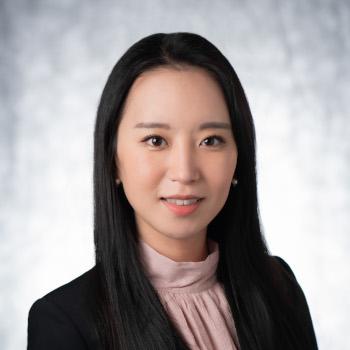Hearing and Communication Clinic (HCC)

- Congenital and acquired sensorineural hearing loss
- Aural atresia/microtia
- Auditory neuropathy spectrum disorder
- Cochlear implant recipients
Your child will be seen by a selection of providers in otolaryngology, audiology, speech-language pathology, education, psychology, social work, and genetics, depending on his/her needs. All team members have expertise in pediatric hearing loss and are committed to improving the care of all children with permanent childhood hearing impairment. Visits typically last from 1.5-2 hours; in anticipation of the length of the visit, you may wish to bring appropriate snacks, activities, and other diversions for your child or other family members. After the visit, we will discuss your child's case together and contact you with a verbal and written plan as well as communicate with your local providers.
Medical Diagnosis and Management
We provide comprehensive diagnostic workup of congenital and childhood-onset sensorineural hearing loss (SNHL) that is evidence-based and family-centered. Learning the cause of your child's hearing impairment is important, as it can provide:
- Valuable prognostic information about the hearing loss and associated syndromic conditions
- Important genetic information for family counseling and planning; and
- In select cases, potential opportunity for future treatment options
The three most common causes of childhood SNHL are congenital CMV infection, genetically inherited hearing loss, and structural anomalies. We will help you decide which of these tests to do, and to coordinate when and how to do them so that we give you the best chance of having a meaningful diagnosis for your child's hearing impairment.
Treatment of Hearing Impairment
Hearing loss is the most common sensory impairment in childhood, affecting up to 1:100 children in various ways. For children with permanent childhood hearing impairment (PCHI), acquisition and maintenance of language and development of strong communication skills can be challenging, but with appropriate and timely intervention, children can grow up so their hearing impairment does not limit their communication abilities. Intervention for hearing loss can take many forms, including the following:
- Hearing aids
- Surgically implanted prosthetics (bone-anchored hearing aids, cochlear implants, ear canal/middle-ear reconstruction)
- Speech/listening therapy
- Educational support (classroom modifications, FM systems, deaf/HOH teaching
- Sign language (SEE, ASL, total communication)
- Psychosocial therapy
- Family support
We will help you identify which combination of these interventions works best for your child and family's needs, and help empower you to implement these in your local community.
ListenUp! Video Education Program
All families seen in the Hearing and Communication Clinic will be offered the opportunity to produce a ListenUp! video. We will work with you to develop and produce a video that simulates your child's hearing impairment and provides communication enhancement tips, for you to share with and educate your community of friends, family, and teachers.

Questions about Program?
Send your questions to our Program Coordinator, Jenny Stephans, via email.
